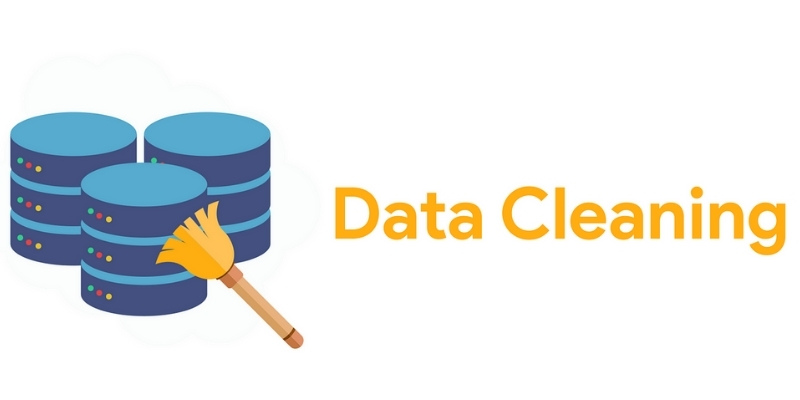Artificial intelligence (AI) is changing how businesses operate, from automation and data analysis to customer service and decision-making. As AI becomes more important across industries, businesses must develop a clear AI strategy. While technology leaders often lead the discussion, the Chief Financial Officer (CFO) also plays a key role in shaping how AI fits into the company’s long-term plans.
The CFO brings a unique perspective—one that combines financial insight, risk awareness, and strategic thinking. This post explores how CFOs can actively contribute to building an AI strategy that delivers real business value.
Why CFOs Are Crucial to AI Strategy
People used to think that a CFO's main job was to report on finances and handle budgets. CFOs are now seen as strategic partners who help with digital change, growth, and new ideas. CFOs are in a good situation to lead the planning process because AI affects both operations and finances.
Investing in AI can be hard and costs a lot of money. As a result, they need careful financial control. CFOs are in charge of making sure that every dollar spent on AI helps the company reach its goals, gives it a return on investment, and supports long-term growth.
Understanding Where AI Can Add Value
Before adopting AI, CFOs must work with business and technology leaders to understand where AI can create value. They must examine the company’s operations and identify areas where efficiency, speed, or accuracy could be improved using AI.
For example:
- Automating routine finance tasks like invoice processing
- Improving forecasting accuracy with predictive analytics
- Identifying fraud or unusual patterns in financial data
- Enhancing reporting and compliance through real-time monitoring
CFOs can use their deep understanding of business operations and cost structures to pinpoint the areas where AI can reduce waste, increase speed, or deliver better decision-making.
Collaborating with Technology and Business Teams

AI planning cannot be done in isolation. CFOs need to collaborate closely with Chief Information Officers (CIOs), Chief Technology Officers (CTOs), and heads of business units. Together, they can align AI investments with actual business needs and goals.
Many companies fail with AI because of a lack of cross-functional coordination. CFOs can prevent this by:
- Encouraging alignment between technology teams and business priorities
- Ensuring that funding is available for high-impact AI projects
- Overseeing that AI projects are tracked and measured like other business investments
By acting as a bridge between the finance and technology teams, the CFO can ensure smoother execution and accountability.
Building a Practical AI Use Case Pipeline
A solid AI strategy does not mean launching large-scale, complex projects right away. Instead, CFOs can help the organization focus on a series of smaller, high-value use cases. These can serve as pilots to prove value before scaling up.
Examples of common AI use cases CFOs might support include:
- Predictive analytics for financial planning
- AI-driven demand forecasting
- Automated approval workflows for finance departments
- Real-time dashboards using AI-powered data visualization
These early wins create momentum and help justify further investment in more advanced AI tools.
Creating a Smart Budget for AI Projects
Investing in AI can be costly, especially when factoring in infrastructure, software, data management, and training. The CFO must ensure that the AI strategy fits within the company’s financial plans.
Key budgeting responsibilities include:
- Creating phased investment plans
- Setting up performance tracking for each project
- Measuring ROI based on productivity gains or cost reductions
- Avoiding overspending on tools that don’t align with business needs
CFOs also need to ensure financial flexibility. AI is still evolving, so the company may need to adapt or shift its investments quickly.
Data: The Foundation of AI

AI is only as good as the data it works with. CFOs, in collaboration with data and compliance teams, must ensure that the company has strong data governance in place.
Poor data quality can lead to bad predictions, biased decisions, and financial errors. That’s why CFOs must focus on:
- Establishing clear ownership of financial and operational data
- Ensuring compliance with data privacy laws and security protocols
- Improving data accuracy and consistency across departments
- Promoting transparency in how AI models use data
By treating data as a core asset, CFOs support smarter and more trustworthy AI use.
Leading Risk and Ethics Discussions Around AI
AI introduces new risks—from biased algorithms to a lack of transparency in automated decisions. CFOs play a critical role in managing these risks and promoting responsible AI practices.
A CFO-led ethical AI approach may include:
- Creating a framework to evaluate AI-related risks
- Ensuring human oversight remains in high-impact financial decisions
- Reviewing whether AI-generated results align with legal and regulatory standards
- Promoting ethical considerations in vendor selection
CFOs should also push for regular audits of AI systems to ensure accountability, especially when financial operations are involved.
Tracking Results and Refining the Strategy
The job doesn’t end once AI tools are deployed. CFOs must set clear goals and track progress over time. It ensures that the AI strategy stays aligned with financial outcomes.
Helpful metrics to track may include:
- Time saved on manual processes
- Forecasting accuracy improvements
- Financial reporting efficiency
- Cost savings or revenue impact
Regular performance reviews allow the CFO to identify what’s working and where the strategy needs adjusting. These insights help future-proof the company’s AI roadmap.
Conclusion
As AI continues to transform the business world, the CFO’s role becomes even more important. With their financial expertise and strategic mindset, CFOs can guide the business toward a thoughtful and effective AI strategy. By working across teams, managing budgets, focusing on responsible AI use, and tracking impact, CFOs help turn AI from a buzzword into a real business advantage. Their leadership ensures that AI investments are not just innovative—but also valuable, measurable, and sustainable.











